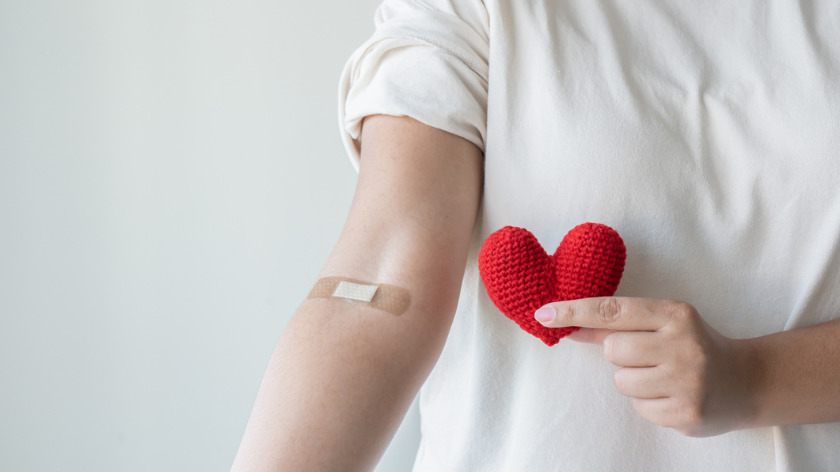How often do you have the opportunity to put the needs of others above your own and provide a lifesaving gift to people in need? This January marks the 55th anniversary of National Blood Donor Month, which brings attention to the ongoing need for blood donations and celebrates those who take the time to be blood donors.
The national blood supply is in critical need, with the U.S. regularly experiencing shortages in its overall inventory. According to the American Red Cross, every two seconds, someone in the U.S. needs blood, including but not limited to accident or burn victims, heart surgery or organ transplant patients, or those battling cancer or other chronic diseases. There is no substitute for blood, yet only 3% of eligible people donate blood annually. There is always a need for blood donations because blood can only be stored for a limited time. Hospitals must always have an ample supply of blood to be prepared to help patients dealing with trauma or other lifesaving procedures like blood transfusions.
The process of donating blood is very simple, taking only a few minutes of your time. While the entire appointment will take about an hour, the donation itself takes less than 10 minutes.
On the day of your donation, you will want to ensure you have consumed an adequate meal and plenty of fluids. Once you arrive at the blood drive, you will review the eligibility requirements and provide identification. You will then be asked to answer a few questions about your health history. Then you will have your vitals taken, including temperature, pulse, blood pressure and a fingerstick to assess your iron level. Then you will either lie down or sit in a comfortable chair for the actual donation, where your blood will be drawn from a vein in your arm. Typically, the actual blood donation will last from six to ten minutes. Once completed, you will be offered a snack and something to drink while you rest for a few minutes – and then you can go about your day! You will also be given follow-up instructions on caring for your bandage, avoiding heavy lifting or intense exercise for the rest of the day, staying adequately hydrated, and avoiding smoking and alcohol immediately post-donation. Read more about the blood donation process here.
If you are ready to make a difference for someone in need, locate a blood drive near you.






